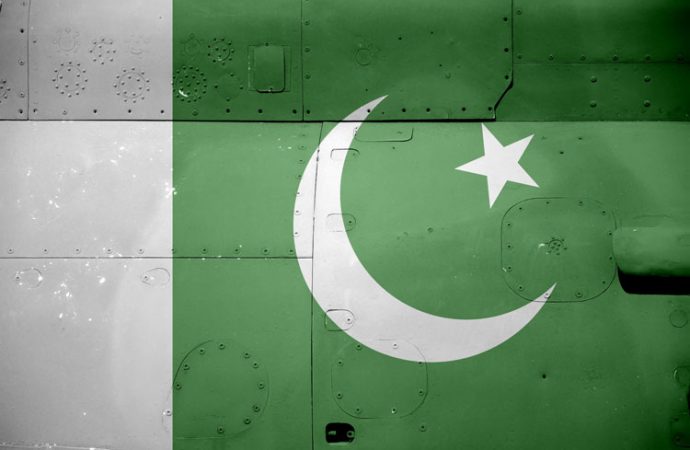Author Recent Posts Rabia Sohail Latest posts by Rabia Sohail (see all) Rising Inflation – Pakistan’s biggest worry – July 27, 2023 Islamophobia on the rise in the West – July 26, 2023 How The Growing Population is Making Pakistan’s Resources Unmanageable? – August 24, 2022
Rising inflation is a major worry for Pakistan. It adversely affects the economy and people’s purchasing power. Price hikes make it difficult for common people to buy goods of necessity. As the business community copes with the unstable economic situation, its implications have reached households. Reduced buying power not only disturbs daily life but also slows economic progress. In May 2023, Pakistan’s inflation grew to 37.97% with the consumer price index (CPI) increasing by 36.5% year on year. This is an unprecedented annual rise in over 50 years. Food products, entertainment and culture, restaurants and hotels, and housing and utilities are the biggest mounting pressures.
The SBP used a number of steps to control inflation, including hiking the policy rate, tightening monetary policy, and improving the supply chain for critical items. External factors such as global oil costs and the COVID-19 pandemic have also added to Pakistan’s economic woes. PBS data shows that Pakistan’s month-on-month increase in May was 1.58%, due to the addition of vegetables, pulses, wheat, wheat flour, rice, eggs and chicken in food items, as well as increases in gasoline and petrol costs. Inflation has been rising since last year, as the government implemented tough budgetary reforms required by the IMF in order to free delayed funding.
The IMF imposed ban on subsidies causing an increase in energy prices. It also asked authorities to impose market-based exchange rate, and new levies be limited in order to produce more money for a supplementary budget. In Pakistan, rising inflation has a significant impact on the unemployment rate. The employment rate rose from 4.4% in 2020 to more than 6% in 2023, and it is expected to reach 8.50 in 2024.
The cost of all components increased further: restaurants & hotels (34.5% vs 30.1%), transport (50.5% vs 39.1% in January), alcoholic beverages & tobacco (49.2% vs 36.3%), housing & utilities (13.4% vs 7.8%), furnishing & household equipment maintenance (34% vs 30%), food & non-alcoholic beverages (45.1% vs 42.9%), recreation & culture (48.1% vs 44.1%), and clothing and footwear (17% vs 16.8%). Consumer prices increased by 4.3% in February, the most in four months, following a 2.9% increase the previous month. The government has also increased sales tax on several items to 25% to collect an additional Rs. 70 billion which is costing the average consumer Rs. 120 billion through inefficiencies at different tiers of the market.
Land prices in Pakistan have risen significantly over the years. When the rupee-dollar parity is in favour of the dollar, the cost of technology, raw materials, and machines surged owing to imports, rising to Rs.285 on the inter-bank exchange and more than Rs.300 on the open market, making it difficult for importers to pay for costly imported inputs. Many productive units in the country will close between January and March 2023, leaving individuals who have been downsized unemployed. The policy interest rates were raised to 200 basis points or 20%, and it is expected that they will be raised to 22% soon, raising the cost of borrowing for the private sector.
The GDP of any nation is the circular movement of revenues and expenditures in money terms between companies and households, as well as the circular flow of inputs of production and products and services between households and enterprises in the real economy. When GDP growth rates exceed population growth rates, the economy is considered to be in good health. The rising inflation tends to threaten the livelihood of much of the population. Lack of focus on human security and underdevelopment enlarge the financial issue of vulnerable parts of society. The negligent and indifferent method towards dealing with human security issues in administration rises to widen the rich-poor gap leading to growing frustration, particularly in the youthful layers of society.
Human security is not only the area of the state, but society should play its role. The prosperous class of Pakistan is least mindful of fulfilling its duty regarding poverty easing and improving the quality of life of most of the people who lack access to the provisions of life. Pakistan needs a strong development rate that can deliver a range of labour and products and energy assets from home and empower the expense of carrying on with work to decrease so financial backers can put resources into useful assets and increment business levels. Expansion ought to boil down to passable levels that can be a motivation for the interesting side as well concerning the stockpile side. Strategy loan fees should be in the single digits so that the cost of borrowing should decrease.
A greater part of the country’s population is soaking into the mess of price hikes, poverty and unemployment. The result of disregarding human security is not likely not to alter the state into a failing and ultimately failed state.
- Rising Inflation – Pakistan’s biggest worry - July 27, 2023
- Islamophobia on the rise in the West - July 26, 2023
- How The Growing Population is Making Pakistan’s Resources Unmanageable? - August 24, 2022





















Leave a Comment
Your email address will not be published. Required fields are marked with *